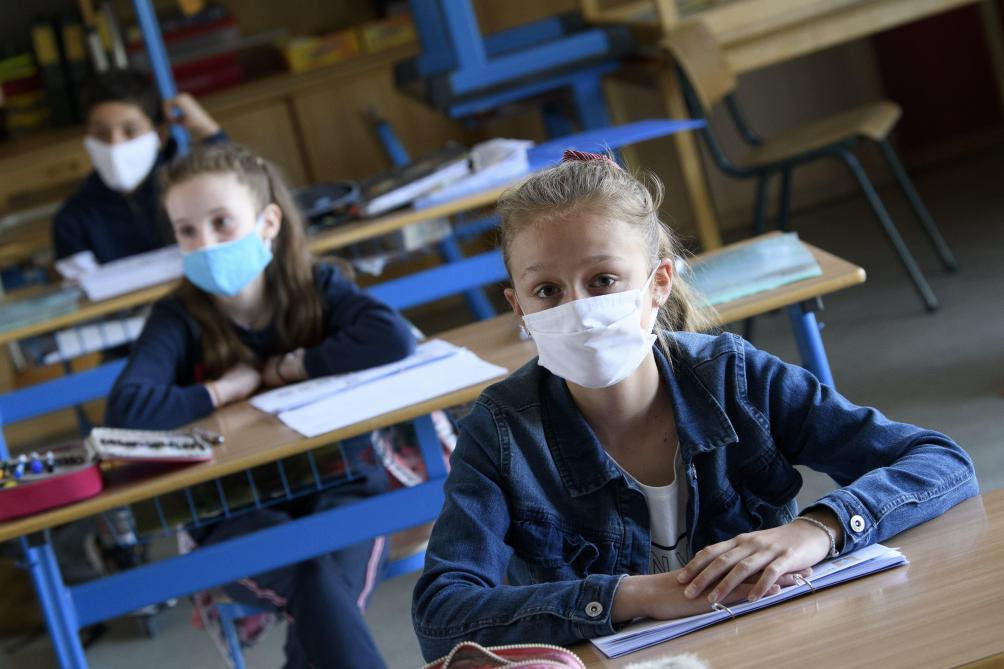Belgium's different Education Ministers presented several extra measures to keep the number of infections in schools under control, during a press conference on Sunday evening.
During the Consultative Committee on Friday, Prime Minister Alexander De Croo gave the Regions' education minister the task to come up with a plan to limit infections in schools by Monday.
"We want the pupils to be able to go to school safely until the Easter holidays, and to be able to go to school fully from the Easter holidays onwards," said Flemish Education Minister Ben Weyts at the press conference.
He also insisted on a "fine-grained approach," meaning that action should be taken when and where it is needed, and only then and there. "Elsewhere: just let the children go to school."
These are the measures the ministers agreed on:
- Class groups are no longer allowed to mix
- Mess halls have to be closed until the Easter holidays: pupils have to eat in their own classroom or the open air
- All pupils are urged to go to school on foot, by bicycle, on a scooter or by any other means of personal transport over the next two weeks. Public transport should be avoided
- Times of recess for different classes should be separated as much as possible
- Empty spaces and buildings (such as cafeterias and parish halls) in the neighbourhood are asked to lend their rooms to schools, to spread out class groups as much as possible
- Things should happen outdoors as much as possible: lunch breaks, gymnastics classes, ...
- Extra-curricular activities can only take place with the own class group, and in the open air
- Adults have as little contact with each other as possible: no school visits by outsiders, meetings can only take place digitally, no physical registration, ...
Related News
- Flemish schools require masks for more primary students, postpone return for secondary schools
- Belgium postpones planned April relaxations
- Prioritising vaccines for teachers will not prevent clusters among children, Health Minister warns
Additionally, the Easter holidays will not be extended, and an extra so-called "cooling-off week" of distance learning will not be implemented either. After the holidays, there will be a complete restart with full contact education for all pupils from Monday 19 April, according to Weyts.
Another important measure is a change in the testing strategy. Rapid tests - which have to be administered by healthcare personnel - must be changed to self-tests, according to Weyts. The regional ministers are looking back to the federal government to make this possible.
Earlier this week, the face mask obligation was already extended to primary school pupils between 10 to 12 years olds.
Maïthé Chini
The Brussels Times

